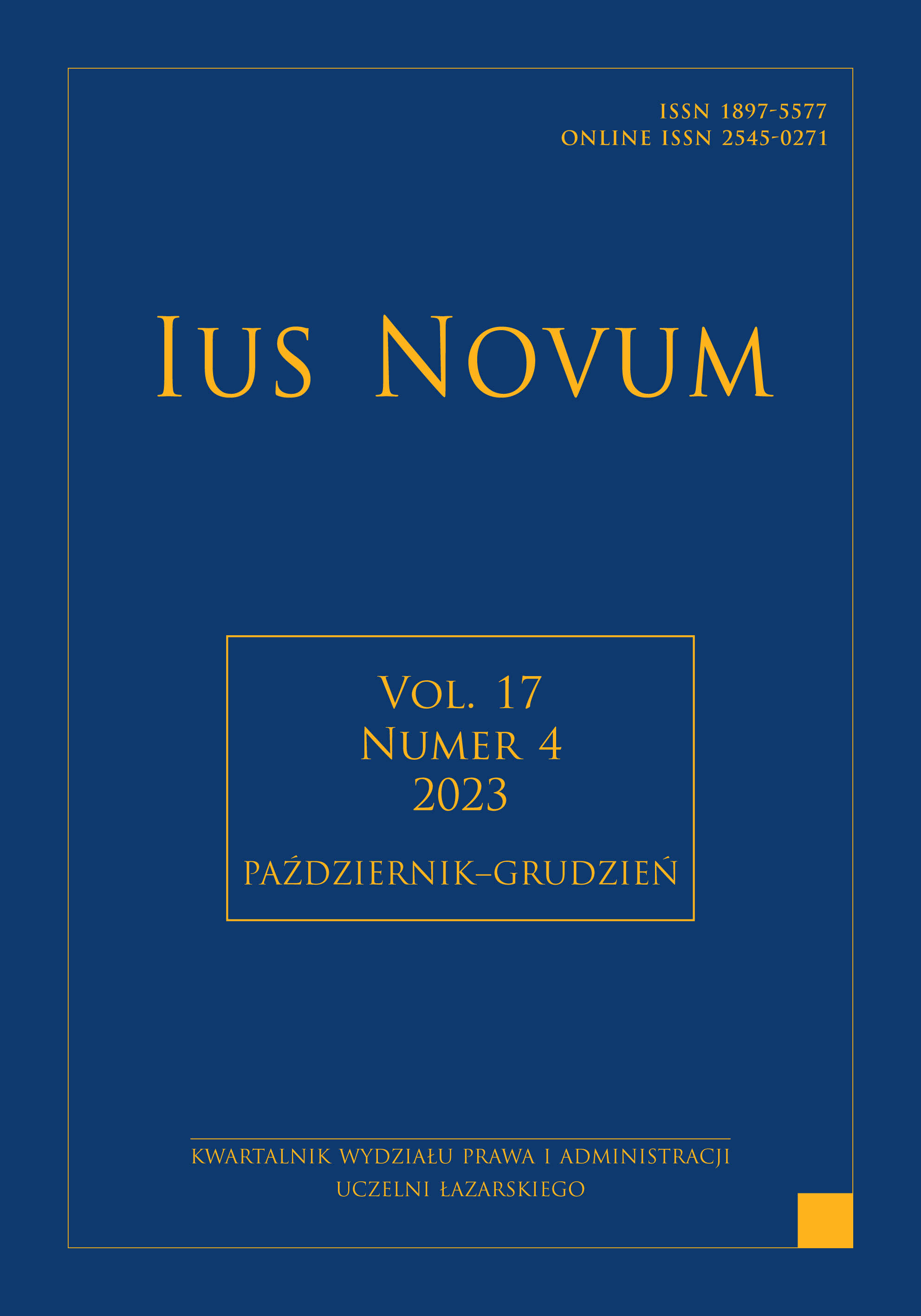Abstract
This article discusses issues related to the issuance of the European Investigation Order (EIO) at the stage of preparatory proceedings when the subject of the proceedings is to obtain information covered by banking secrecy from a foreign bank. As part of the considerations, attention was paid to the essence of this instrument of international cooperation in criminal matters and its comprehensive nature. The key problem revealed in the prosecutorial and judicial practice is the determination of the entity competent to issue the European Investigation Order in the in rem phase of the preparatory proceedings. As part of this problem, it is also necessary to determine whether in such a procedural situation it is necessary to obtain the consent of the district court for access to bank secrecy and whether this affects the scope of competence of the court or the prosecutor. The query of the jurisprudence and the accompanying opinions of the doctrine carried out in the article revealed a non-uniform, even mutually exclusive, approach to this issue. A critical look at the presented range of views made it possible to take a clear position on the above-mentioned issues. scope and formulation of the de lege ferenda postulate.
References
Buczma S.R., w: S.R. Buczma, R. Kierzynka, Europejski nakaz dochodzeniowy. Nowy model współpracy w sprawach karnych w Unii Europejskiej, Warszawa 2018.
Janicz M., w: Kodeks postępowania karnego, Komentarz, red. K. Dudka, Warszawa 2020.
Klimczak J., Wzorek D., Zielińska E., Europejski nakaz dochodzeniowy w praktyce sądowej i prokuratorskiej – ujawnione problemy i perspektywy rozwoju, Warszawa 2022.
Kluza J., Implementacja w polskim porządku prawnym dyrektywy o europejskim nakazie dochodzenia, „Zeszyty Naukowe Towarzystwa Doktorantów UJ. Nauki Społeczne” 2018, nr 21 (2).
Kobes P., Czy prokurator może wydać europejski nakaz dochodzeniowy? Omówienie wyroku TS z dnia 8 grudnia 2020 r., C-584/19 (Staatsanwaltschaft Wien), LEX/el. 2020.
Kosowski J., Europejski Nakaz Dochodzeniowy – zagadnienia wybrane, „Wiedza Obronna” 2021, t. 277, nr 4.
Król A., Europejski nakaz dochodzeniowy jako kompleksowy instrument współpracy w sprawach karnych w Unii Europejskich, „Rocznik Administracji Publicznej” 2019, nr 5.
Krzysztofiuk G., Europejski nakaz dochodzeniowy, „Prokuratura i Prawo” 2015, nr 12.
Kuczyńska H., Komentarz do art. 589w k.p.k., w: Kodeks postępowania karnego. Komentarz 2021, red. J. Skorupka, Legalis.
Kusak M., Dowody zagraniczne. Gromadzenie i dopuszczalność w polskim procesie karnym. Przewodnik z wzorami, Warszawa 2019.
Kusak M., Europejski Nakaz Dochodzeniowy – przełom w dziedzinie europejskiego ścigania karnego?, „Ruch Prawniczy, Ekonomiczny i Socjologiczny” 2012, R. LXXIV, nr 2.
Ochnio A.H., Europejski nakaz dochodzeniowy dotyczący informacji objętych tajemnicą bankową. Glosa do postanowienia Sądu Apelacyjnego w Katowicach – Wydział II Karny z dnia 4 września 2018 r., II Akz 645/18, OSP 2021, nr 7–8.
Stefański R.A., Skuteczność przedstawienia zarzutów, „Prokuratura i Prawo” 2013, nr 6.

